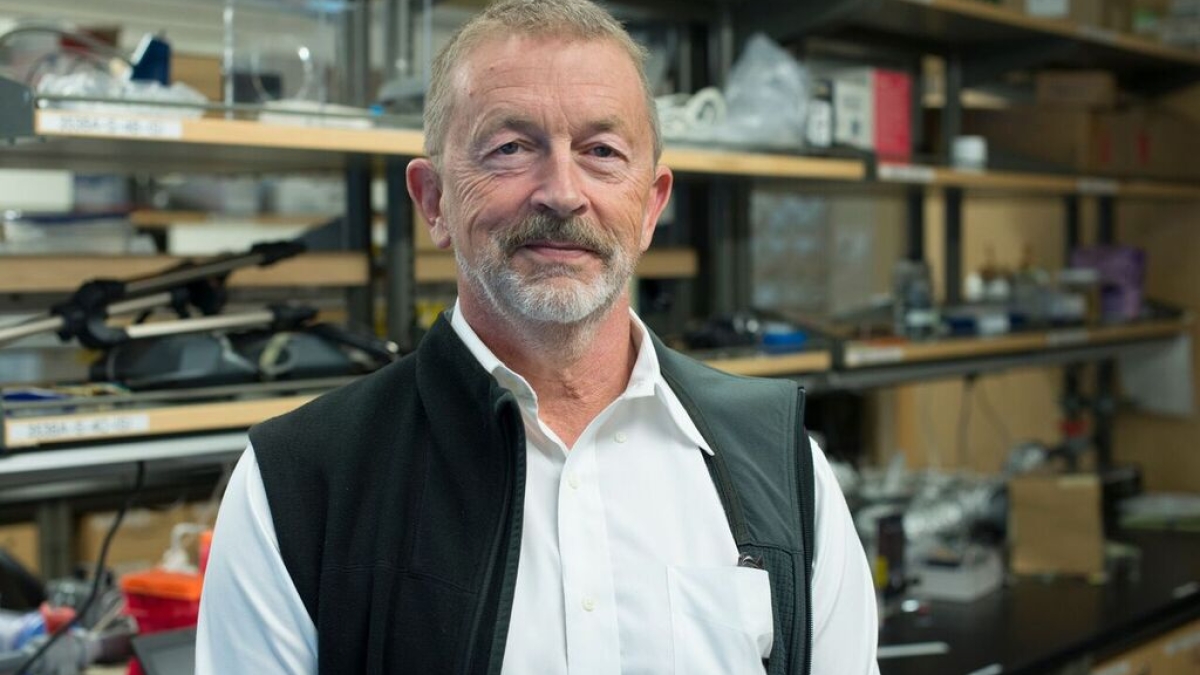Graduate College appoints Brian Smith as associate dean of graduate initiatives

Brian Smith will lead international initiatives at the Graduate College to enhance ASU’s global presence.
Brian H. Smith, an accomplished researcher in behavioral neuroscience and professor at the School of Life Sciences, has been named associate dean of graduate initiatives in the Graduate College at Arizona State University.
In his new position, Smith will lead international initiatives at the Graduate College to enhance ASU’s global presence.
“Dr. Smith clearly has the skills necessary to deepen the quality and scope of ASU’s graduate academic programs, while advancing graduate initiatives,” said Alfredo Artiles, dean of the Graduate College. “I’m thrilled he has agreed to join the leadership of the Graduate College.”
Smith joined ASU as faculty in the School of Life Sciences at Arizona State University in July 2005, after having spent 15 years as faculty at Ohio State University’s Department of Entomology. In 2006, he led the development of a new doctoral program — Interdisciplinary Graduate Program in Neuroscience, in partnership with Barrow Neurological Institute. He then served as director of the School of Life Sciences for three years and as a leadership fellow in the Office of the Provost, where he has worked to help advance development of online programs at ASU. Under direction of the provost, he recently completed work on a new undergraduate program in neuroscience, set to launch this fall semester.
During his research career, he has mentored many undergrads, 15 graduate students and more than 20 postdoctoral researchers who have gone on to teaching and research positions in the United States, France, Germany, Argentina, Israel and the United Kingdom.
Collaboration with researchers from disciplines as diverse as mathematics, chemistry, engineering and art has been central in his research and administrative work: “I find collaboration allows me to ask questions at different levels,” Smith said.
“By 2030 the number of people in the world that will require a university education will more than double. This presents an opportunity for ASU to address a growing demand for graduate programs by actively engaging with other programs in the U.S. and across the world,” Smith said.
As associate dean, Smith will foster initiatives to advance strategic graduate program development.
Smith’s own research has been continuously funded since 1991 by the National Institutes of Health, National Science Foundation, Defense Advanced Research Projects Agency, U.S. Department of Agriculture and the Human Frontiers Science Program out of the European Community.
Additionally, Smith serves as a fellow in PLuS Alliance, which is a consortium between ASU, King’s College London and the University of New South Wales in Sydney, and he is a senior fellow of the Zukunftskolleg at the University of Konstanz in Germany.
An author of more than 100 peer-reviewed journal publications, Smith is also an elected fellow of the American Association for the Advancement of Science. He has received a Fulker Award from Behavior Genetics Association and a National Institute of Mental Health Nation Research Service Award.
Smith’s appointment took effect July 1.
More Science and technology

Indigenous geneticists build unprecedented research community at ASU
When Krystal Tsosie (Diné) was an undergraduate at Arizona State University, there were no Indigenous faculty she could look to…

Pioneering professor of cultural evolution pens essays for leading academic journals
When Robert Boyd wrote his 1985 book “Culture and the Evolutionary Process,” cultural evolution was not considered a true…

Lucy's lasting legacy: Donald Johanson reflects on the discovery of a lifetime
Fifty years ago, in the dusty hills of Hadar, Ethiopia, a young paleoanthropologist, Donald Johanson, discovered what would…